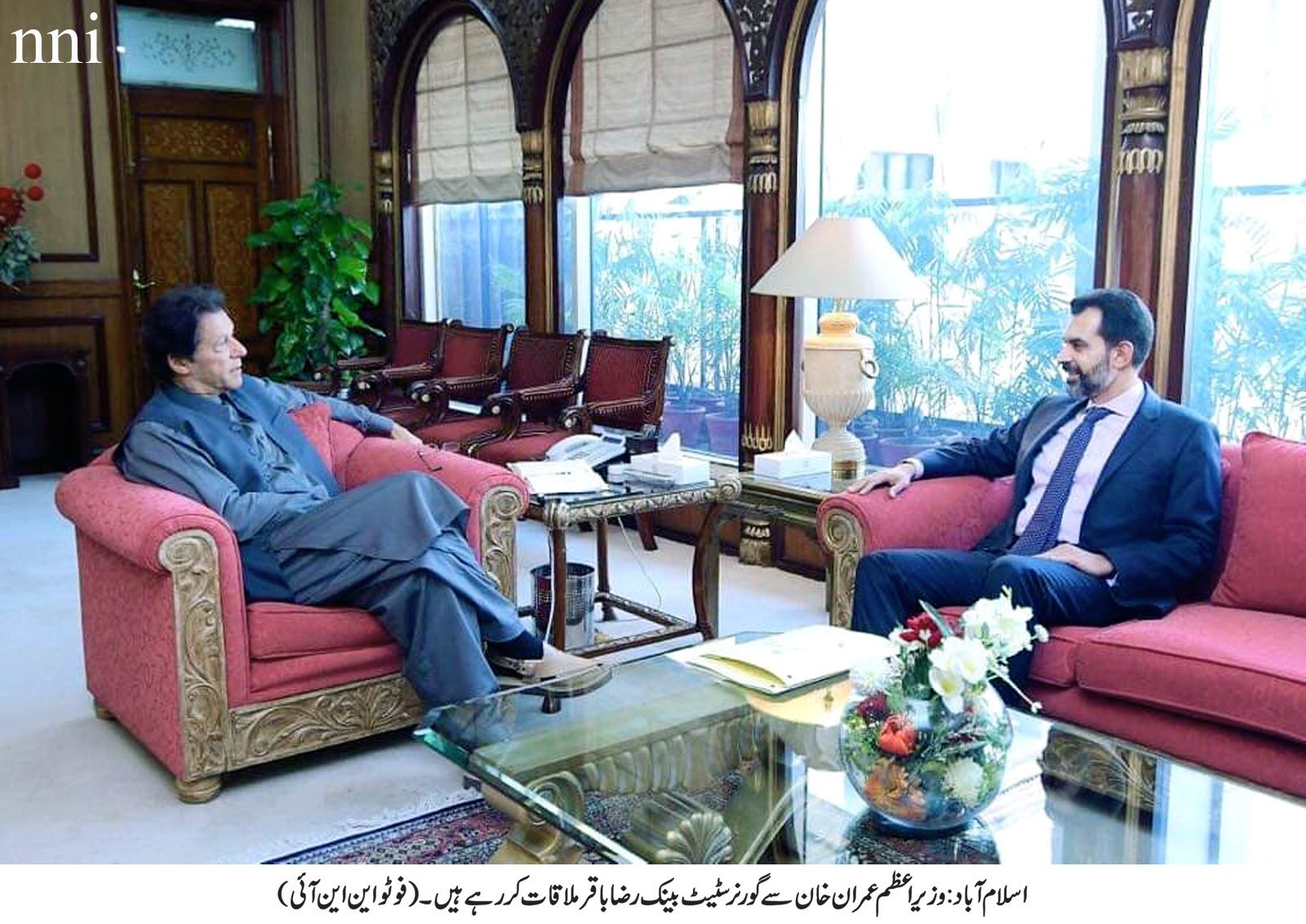
The meeting took place four days after the prime minister was apprised by his economic managers about the adverse implications of the tight monetary policies on job creation and other economic activities.
The prime minister was informed last week that the business community had clearly said that it was difficult for them to do business at the prevailing interest rates, said a government source.
The SBP on Wednesday did not directly respond to The Express Tribune’s questions whether the prime minister raised the tight monetary policy issue or advised the SBP governor to cut the interest rates.
According to the SBP and the Prime Minister’s Office handouts, the governor briefed the prime minister on the outcome of the Asia Pacific Group meetings and specifically “how we successfully avoided any downgrades in individual ratings in the APG’s Mutual Evaluation Report”.
These brief statements noted that “the governor also briefed the prime minister on the continued improvement in the current account and more generally the positive response to the reform policies”. The statements neither denied nor confirmed whether the prime minister advised the central bank chief to relax the interest rates, which have doubled in the past year.
Various indications suggested that the central bank governor wanted to keep the interest rates high to attract hot foreign money into the government securities to build official foreign currency reserves.
The Prime Minister’s Office also released footage of the meeting between the SBP governor and the prime minister. Earlier, it was rare to release the footage between the prime minister and the SBP governor. But it is becoming a new norm after Dr Baqir assumed the office in May this year. Usually, such meetings give an impression of undermining the autonomy of the central bank.
Fiscal, Monetary Coordination Board
A meeting between Khan and Dr Baqir also took place as the Monetary and Fiscal Policies Coordination Board met at the Q Block. The board expressed concern over the weakening fiscal position and emphasised the need for a “regulated policy rate” for the exporters.
Meeting of the Monetary and Fiscal Policies Coordination Board was held under the chairmanship of the Adviser to the Prime Minister on Finance and Revenue, Dr Abdul Hafeez Sheikh, with the SBP Governor in attendance. The board is tasked with setting the direction of the economic policies.
Targeted policy rate
“It was emphasised that the policy rate may be regulated in a way to confine external sector vulnerability by focusing and prioritising the export-oriented sectors to generate a more exportable surplus and become more competitive,” according to an official handout of the Finance Ministry.
The policy board also emphasised that “the unnecessary imports are required to be restricted that has eroded the competitive edge of domestic industry”. However, it seems difficult to restrict imports due to China-Pakistan Free Trade Agreement Phase II.
The growth in large-scale industries sector contracted 3.6% in the last fiscal year, for the first time in 10 years. “The board also discussed options to enhance the economic activities in potential areas of the economy with targeted policy interventions,” the Finance Ministry said.
Weakening fiscal position
The meeting reviewed the impact of fiscal and monetary policies on economic growth, inflation, investment and external sector of the economy. While reviewing the fiscal policy, the board observed that there is a need to narrow the fundamental revenue-expenditure gap and the export-import gap by ensuring prudent expenditure management and efficient resource mobilisation strategy.
“It was also agreed that appropriate policy measures will be adopted to curtail fiscal deficit during the current fiscal year,” according to the handout.
The PTI government closed last fiscal year at a record Rs3.44 trillion budget deficit that was equal to 8.9% of the GDP. The government missed the budget deficit target by a wide margin of 82% or Rs1.5 trillion. This has made the current fiscal year’s budget unrealistic until some additional revenue measures are taken to the satisfaction of the IMF. The FBR’s tax collection remained a problem and the government knew that Rs5.503 trillion annual tax collection target, forced by the IMF, would not be achieved.
The policy board also reviewed the fundamentals of the economy and the performance of the government decisions like upward adjustment in gas and electricity prices, market-based exchange rate adjustments, increase in interest rate, etc.
Keeping in view the increased debt serving, lesser resources for public services and tight monetary policy, the need for consistent and deep-rooted structural reforms was emphasised by the policy board.
The finance ministry said that the pressure on the external sector was relieved with the first tranche of IMF Extended Fund Facility, activation of the Saudi oil facility and increase in exports. This has not only supported the balance of payment but also strengthened market confidence.
Furthermore, additional financial support from other development and bilateral partners will support stability and inclusive growth. However, slower inflows of foreign direct investment are a challenge.




1719660634-1/BeFunky-collage-nicole-(1)1719660634-1-165x106.webp)












COMMENTS
Comments are moderated and generally will be posted if they are on-topic and not abusive.
For more information, please see our Comments FAQ